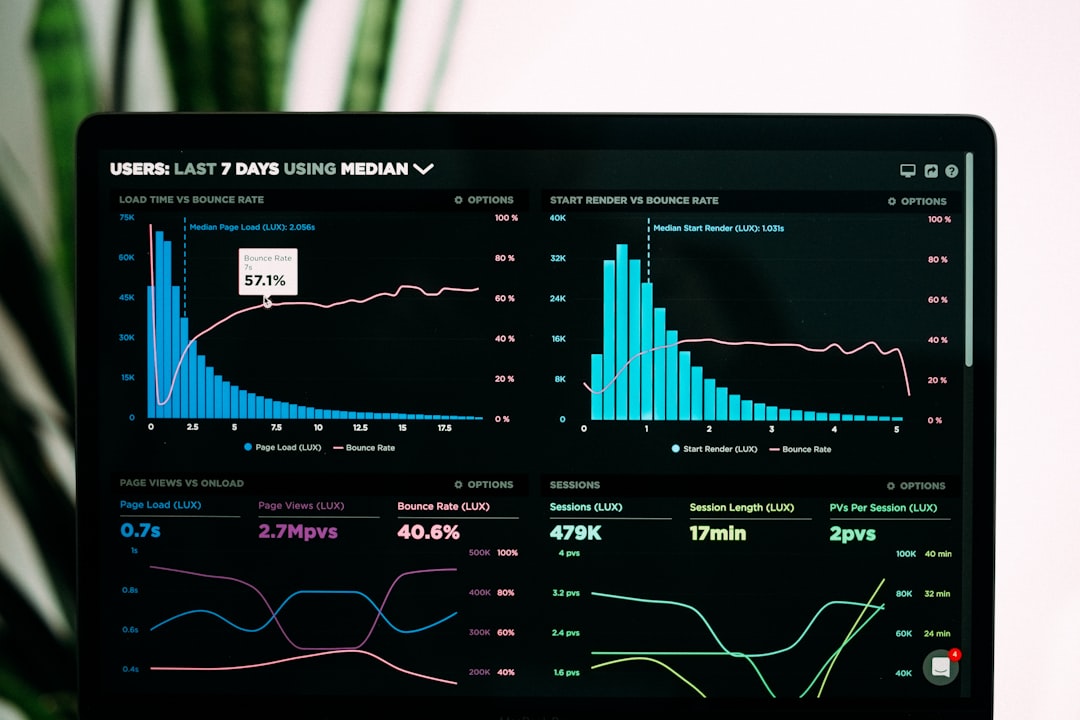Unlock encrypted content
Please enter your SSCE key to initiate on-the-fly decryption.
Decryption key: (Click cancel if you don't have the key)
Copied link to clipboard.
This feature is unavailable for free accounts. Upgrade now and enjoy all Premium benefits.
Go Premium!
This feature is unavailable for free accounts. Upgrade now and enjoy all Premium benefits.
Go Premium!
Please open this page in browser ( Google Chrome or Safari ) to use this feature.
Open In Browser
Synthetic Biology and Its Impact on Various Industries
Random related video for this blog.
Copied share link to clipboard.
This emerging discipline has the potential to revolutionize various industries, from healthcare and agriculture to energy and manufacturing. In this article, we will explore the applications and implications of synthetic biology in different sectors, and how it is shaping the future of technology and innovation.
Synthetic Biology in Healthcare
In the field of healthcare, synthetic biology holds immense promise for the development of new drugs, diagnostics, and therapies. By manipulating the genetic code of living organisms, scientists can create novel molecules that can target specific diseases or conditions. For example, researchers are using synthetic biology techniques to engineer bacteria that produce insulin, a vital hormone for individuals with diabetes. This approach has the potential to provide a sustainable and cost-effective solution for insulin production, reducing the dependence on traditional manufacturing methods. Furthermore, synthetic biology is also being utilized in the development of personalized medicine. By analyzing an individual's genetic makeup, scientists can tailor treatments to specific genetic variations, increasing their efficacy and reducing side effects. This approach has shown promising results in cancer treatment, where therapies can be designed to target specific mutations present in a patient's tumor cells. Synthetic biology enables precise and targeted interventions, leading to more effective treatments and improved patient outcomes.Synthetic Biology in Agriculture
The agricultural industry is another sector where synthetic biology is making significant strides. By engineering crops to be more resilient, nutritious, and sustainable, scientists aim to address the challenges of food security and environmental sustainability. For instance, researchers are using synthetic biology techniques to develop genetically modified organisms (GMOs) that are resistant to pests, diseases, and harsh environmental conditions. These modified crops have the potential to increase yields, reduce the need for pesticides, and minimize the impact on natural resources. Synthetic biology is also being employed to enhance the nutritional contentof crops. By introducing genes responsible for the production of essential vitamins and minerals, scientists can develop biofortified crops that can help combat malnutrition and improve public health. For example, genetically modified rice varieties have been engineered to produce higher levels of vitamin A, addressing vitamin A deficiency in regions where rice is a staple food.
Synthetic Biology in Energy and Manufacturing
The applications of synthetic biology extend beyond healthcare and agriculture, reaching into the realms of energy and manufacturing. In the energy sector, scientists are exploring the use of synthetic biology to develop sustainable biofuels. By engineering microorganisms to convert renewable resources such as plant biomass or algae into biofuels, researchers aim to reduce reliance on fossil fuels and mitigate the environmental impact of traditional energy sources. In the field of manufacturing, synthetic biology offers new possibilities for the production of chemicals, materials, and consumer goods. By harnessing the metabolic capabilities of microorganisms, scientists can design biological factories that efficiently produce complex molecules. This approach has the potential to revolutionize the production of pharmaceuticals, plastics, and other industrial chemicals, making the manufacturing process more sustainable and environmentally friendly.Synthetic Biology and the Future
As synthetic biology continues to evolve, it presents both opportunities and challenges. While the potential benefits are vast, there are also ethical and safety considerations that need to be carefully addressed. The responsible and regulated use of synthetic biology is crucial to ensure its positive impact on society and the environment. In conclusion, synthetic biology is a multidisciplinary field that is revolutionizing various industries, from healthcare and agriculture to energy and manufacturing. By harnessing the power of biology, engineering, and computer science, scientists are pushing the boundaries of what is possible, paving the way for a more sustainable and technologically advanced future.Frequently Asked Questions (FAQs)
Question: What is synthetic biology? Answer:
Synthetic biology is a field that combines biology, engineering, and computer science to design and construct new biological parts, devices, and systems.
Question: How is synthetic biology being used in healthcare? Answer:
Synthetic biology is being used in healthcare to develop new drugs, diagnostics, and therapies. It enables the engineering of bacteria to produce specific molecules, such as insulin, and allows for personalized medicine tailored to an individual's genetic makeup.
Question: What are the applications of synthetic biology in agriculture? Answer:
Synthetic biology is being used in agriculture to develop genetically modified crops that are resistant to pests and diseases, as well as biofortified crops with enhanced nutritional content. These advancements aim to improve food security and sustainability.
Question: How is synthetic biology impacting the energy and manufacturing sectors? Answer:
Synthetic biology is being explored in the energy sector for the development of sustainable biofuels. In manufacturing, it allows for the efficient production of chemicals, materials, and consumer goods using biological factories.
Case Studies: 1. The production of synthetic spider silk using genetically modified bacteria has the potential to revolutionize the textile industry, offering a sustainable and biodegradable alternative to traditional materials. 2. Researchers at the University of California, Berkeley, have developed a synthetic biology approach to produce opioids in yeast. This could provide a more cost-effective and controlled method of opioid production, addressing the current opioid crisis.
By Amelia Isabella
Email: [email protected]
Related
Internet of Medical Things (IoMT): Revolutionizing Healthcare with Advanced File...
June 28, 2023
Read More
Streamlined File Sharing Workflows: Enhancing Efficiency and Security in Cloud...
June 28, 2023
Read More
Exoplanets and Habitable Worlds: Exploring the Possibilities of Life Beyond...
June 29, 2023
Read More
Nanotechnology: Transforming Futuristic Societies with Advanced Technologies
June 29, 2023
Read More
Popular
Latest
The Future of Digital Transformation: Exploring Smart Homes, Efficient File...
November 30, 2025
Read More
Exploring the Benefits of Cloud Storage and Innovative Technologies in...
November 26, 2025
Read More
The Future of Technology: Exploring Biohacking, Space Tourism, and Digital...
November 23, 2025
Read More
The Future of File Sharing: Streamlined Workflows for Photographers and...
November 19, 2025
Read More
Exploring the Intersection of Technology: From Cybersecurity to Augmented Reality...
November 16, 2025
Read More
The Future of File Management: Embracing Edge Computing and Efficient...
November 12, 2025
Read More
The Future of File Sharing: Exploring User-Friendly Solutions and Data...
November 5, 2025
Read More
The Future of Cloud Storage: How FileLu Empowers Creative Professionals...
November 2, 2025
Read More
The Future of Autonomous Technologies: Innovations in Robotics, File Sharing,...
October 29, 2025
Read More
Emerging Technologies Revolutionizing File Management: From Li-Fi to Robust Collaboration...
October 26, 2025
Read More
Emerging Technologies: Exploring the Impact of File Access Auditing, Genetic...
October 19, 2025
Read More
The Future of Data Storage: Exploring Advanced Encryption, Mobile Integration,...
October 5, 2025
Read More
Exploring the Future of Data Management: Security, Efficiency, and Cognitive...
September 28, 2025
Read More
Revolutionizing Data Management: Innovations in Storage, Security, and Sustainable Technology.
September 24, 2025
Read More






















